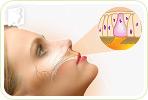
Night sweats can cause a woman to wake up in the middle of the night drenched in sweat. This can cause her to have trouble falling back asleep and lead to long-term health problems, such as insomnia and fatigue. The day after an episode of night sweats, a woman may be more tired, stressed, and irritable than usual.
Those who suffer from night sweats, especially menopausal women, may feel that the cycle will never end. One way to manage night sweats is to figure out what may be triggering your night sweats and then to find a way to reduce or avoid those triggers.
Stress

One of the main triggers of night sweats during menopause is stress. Stress can be caused by high workloads, family troubles, or other life changes. To combat stress, try to unwind before going to bed and reduce unnecessary distractions. This means putting down your phone, turning off the TV, and shutting down your laptop. Try to read a book, write in a journal, or enjoy another creative outlet before going to bed instead. It also may be helpful to talk to a therapist to work through any ongoing stress you have in your life.
Excessive Heat
Night sweats during menopause can be triggered by excessive heat. Although you may feel comfortable when you nod off, the atmosphere around you and your body temperature can change. You can never truly control night sweats, but you can alleviate some of the symptoms and help prevent episodes from occurring. Try lowering the room temperature, keep a handheld fan and glass of ice water near the bed, and use layers of sheets and blankets. Avoiding saunas and hot tubs in the hours leading up to going to bed can also help.
Fluctuating Hormone Levels

The root cause of night sweats during menopause is hormonal fluctuations. When your hormone levels fluctuate, your internal thermostat can become confused and think your body is hotter than what it actually is. As a result, it tries to cool you down, and you experience the uncomfortable effects of a night sweat.
One of the most effective treatments for menopause symptoms is hormone replacement therapy (HRT), which increases the amount of estrogen in the body. However, in many cases, reducing triggers and improving your lifestyle is enough. Talk to your physician for more information about HRT and other ways to manage night sweats.
Sources
- Boston Women's Health Collective. "Hot Flashes, Night Sweats and Sleep Disturbances".
- Mayo Clinic Staff. (2014). Night Sweats. Retrieved November 10, 2015, from http://www.mayoclinic.org/symptoms/night-sweats/basics/definition/sym-20050768
- National Health Service UK. (2014). Night Sweats. Retrieved November 10, 2015, from http://www.nhs.uk/conditions/night-sweats/Pages/Introduction.aspx
- Our Bodies, Ourselves, 2006.Our Bodies, Ourselves, 2006.



